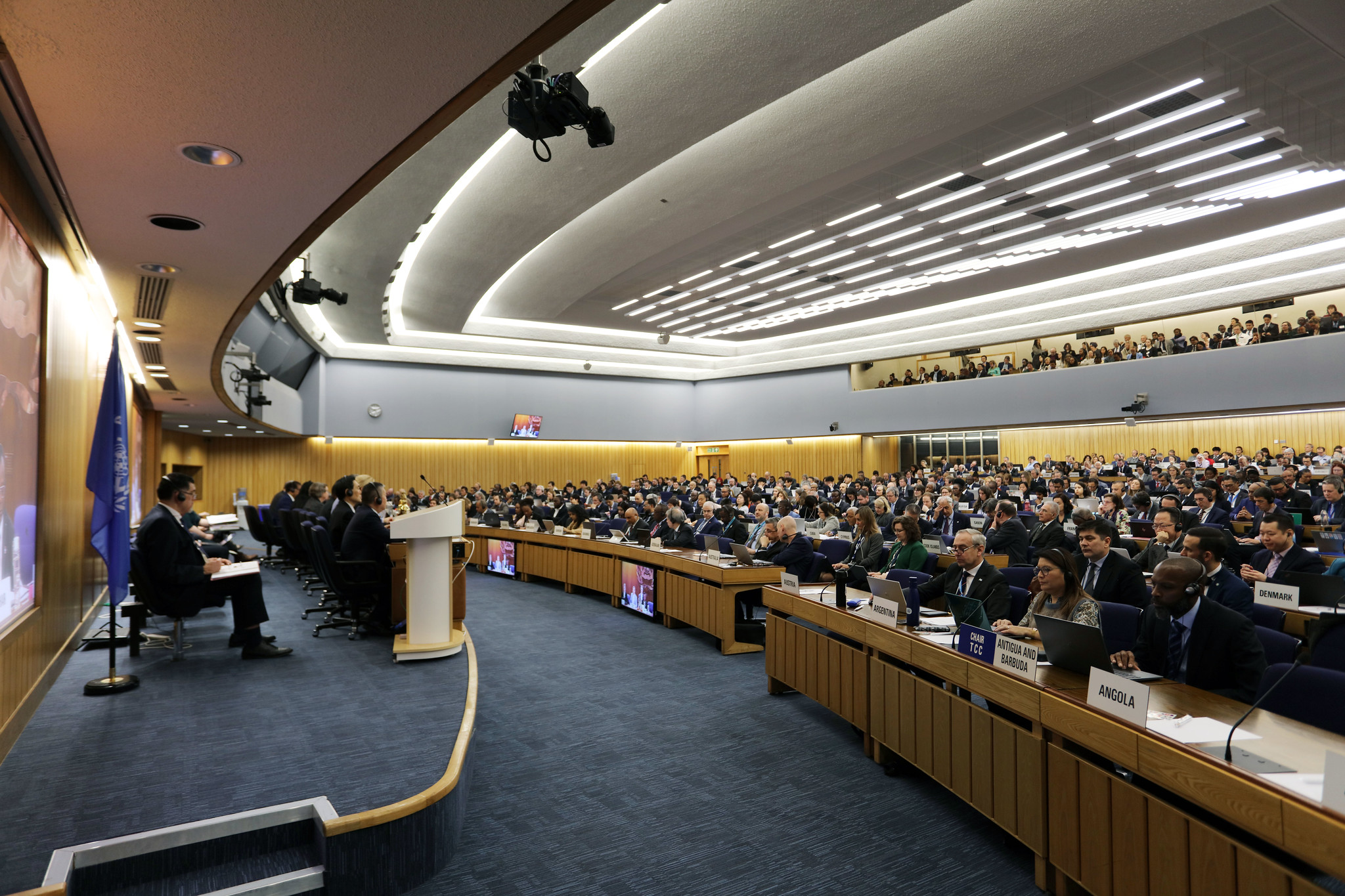
Earlier this month, the International Maritime Organization (IMO) has taken significant strides toward establishing a comprehensive framework aimed at reducing greenhouse gas (GHG) emissions from international shipping. In a recent gathering, the Maritime Environment Protection Committee (MEPC 81) convened in London from 18 to 22 March 2024, marking a pivotal moment in advancing global regulations for mitigating maritime emissions.
IM0 Secretary-General Mr. Arsenio Dominguez expressed satisfaction with the progress made during the session, acknowledging the committee’s role as a crucial forum for addressing environmental concerns within the maritime industry.
A draft outline of the IMO net-zero framework has been proposed, outlining regulations under the International Convention for the Prevention of Pollution from Ships (MARPOL). This framework is poised to introduce a new global fuel standard and pricing mechanism tailored to curb maritime GHG emissions effectively. Notably, the framework may include a goal-based marine fuel standard and economic incentives to facilitate the transition to net-zero emissions.
These initiatives align with the objectives outlined in the revised IMO Strategy on the Reduction of GHG Emissions from Ships, ratified in July 2023. As discussions progress, various proposals are under consideration to refine the measures encompassed within the net-zero framework.
Moving forward, MEPC has outlined several key steps to advance the agenda on GHG emissions reduction. These include conducting a comprehensive impact assessment on the proposed mid-term measures’ effects on Member States, organizing expert workshops to discuss preliminary findings, and establishing working groups to facilitate further deliberations.
Additionally, MEPC has adopted revised guidelines on the life cycle GHG intensity of marine fuels, incorporating updated calculations and templates to enhance emission factor submissions. These guidelines aim to provide a standardized approach to calculating GHG emissions throughout the production and utilization of marine fuels.
In addressing other environmental concerns, MEPC has approved the establishment of new Emission Control Areas (ECAs) in Canadian Arctic Waters and the Norwegian Sea, aiming to regulate pollutants such as Nitrogen Oxides, Sulphur Oxides, and Particulate Matter. Furthermore, the committee has endorsed recommendations for the safe carriage of plastic pellets, endorsed action plans to reduce underwater noise from commercial shipping, and updated work plans for developing guidelines on alternative fuels and ballast water management.
As the maritime industry continues its journey toward sustainability, these regulatory developments underscore a collective commitment to environmental stewardship and the pursuit of a greener future for international shipping.
Source: IMO

